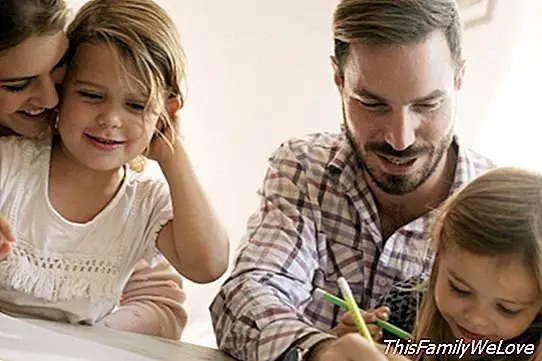Patience with children: tricks to have nerves of steel

Sometimes, you need nerves of steel to know how to wait for our son to be trained in doing well the things that we could solve in a minute. And having patience with children means, among other things, knowing how to wait, knowing how to invent in each moment, knowing how to rectify when circumstances have changed and being ready for change.
Our children constantly capture the details of the environment and the people around them. Someone once commented that children are like video cameras, that they never close the lens and never stop working.
How to exercise patience with children
Being patient is a personality trait. Many parents will say that they have not been born with that virtue, but when it comes to the education of children it is convenient to cultivate it, with a good dose of personal self-control and a lot of love. These tips will help you to be a little more patient at home with your children:
1. Take into account the child's age: It is convenient to exercise the patience of the wise person that will take us into account that, sometimes, denying a child a special folder can be as bad as paying him on another occasion for a trip abroad. We must try to give each child the attributions that can develop and the responsibilities that should have. That is to say, a child at the age of seven can very well help with the tasks of setting the table and serving it, but if we take that to the letter and instead of demanding to put the cutlery and plates, we pretend that they take it out of the oven a source of besamel with eggs, it is likely that we all end up in the house of help.
2. Act with nerves of steel. In order not to lose patience with the children, it helps a lot to know at every moment whether it is appropriate to yield or not to yield, demand or compromise. To begin to get responsibilities in our children we will have to control our nerves and our desires that things always come out the first time. And sometimes you need some nerves of steel to know how to wait for our son to be trained to do well the things that we could solve in a minute.
A patience without limits
Patience should not have a limit and if we put it on, it stops being patience. I remember in this regard the exasperation produced in a mother by the attitude of one of her children of a few years who made endless balls of meat in her mouth when eating and on one occasion she shouted at him in addition to the usual "Swallow, child!" Next statement: "Let's see when the day comes when you normally eat and do not make these balls with meat!" To which the child replied with the grandiosity that produced his excessively full mouth: "Jo, mom, I will then swallow quickly, quickly, quickly, and you will speak to me, short, short, short".
Children, adolescents, young people, are tireless, insatiable and never seem to have learned any of our teachings. His desires to discourage us are only comparable to our desire to train them. Many times we will come to the conclusion that we work alone in a desert.
Other times we will feel a more acute pain, because our sensation will be that we have made a mistake, that we have ruined the material that has been entrusted to us and that the thing has no arrangement. In these cases, the only thing that we have to take into account is that we are not so despicable and, nevertheless, we produced the same sensation to our parents.
Increase confidence
This lack of security or sufficiency is one of the factors that will serve our educational task, because it will make us trust more in our children and in the people who help us to train them. And when we discover in them something that does not work, it will help us to be more human, to love them more, to offer them the support they need, because we will discover them as fragile as ourselves.
Antonio Díaz Argüelles




